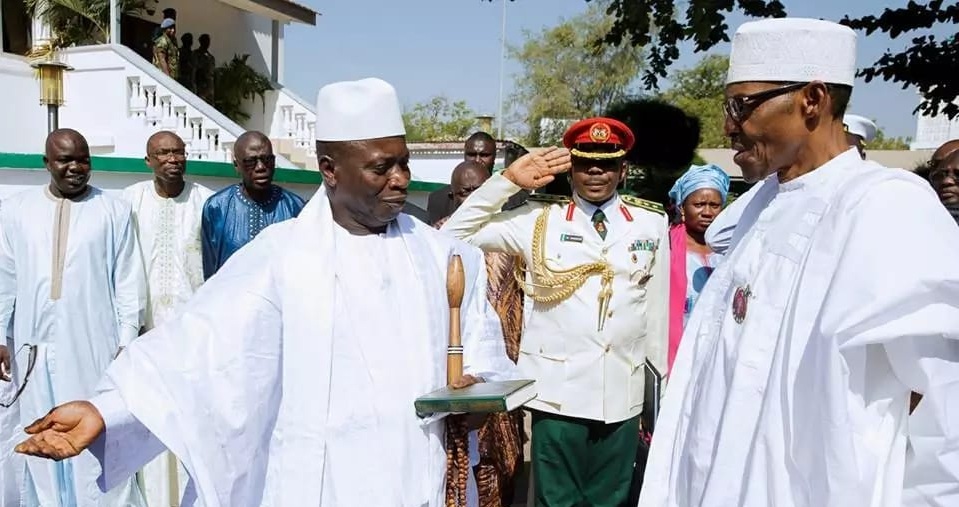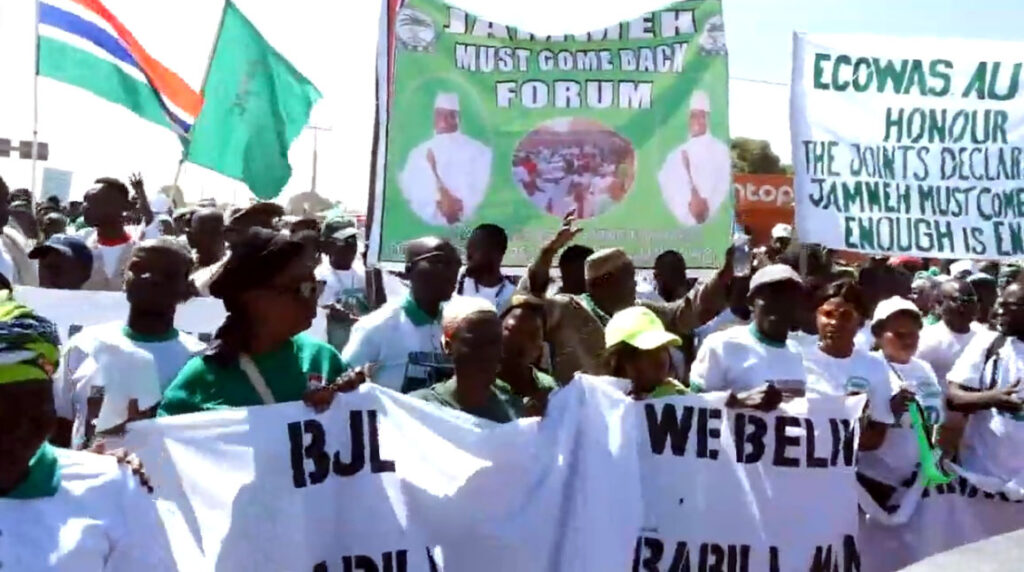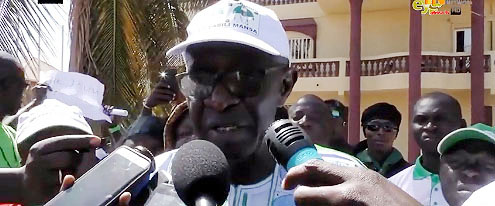The political temperature in the West African nation of The Gambia is rising as thousands of supporters of former President Yahya Jammeh took to the streets of Banjul on Thursday (16 January) to demand for the return of the ousted ruler.
The protest action, organised by Jammeh’s party Alliance for Patriotic Reorientation and Construction party (APCR), is to send a message to the incumbent government of President Adama Barrow that the former ruler is still a force to reckon with in the country’s politics, analysts say.

APCR’s supporters insist that under the agreement that paved way out of the crisis that engulfed the country after Jammeh refused to vacate office upon losing election in December 2016, he’s allowed to return to the country at a time of his choosing. Jammeh himself also says that under the deal he signed with ECOWAS and the African Union, he has the right to return to his home country.
The international bodies is said to have included the clause that Jammeh could return at “a time of his choosing” in a January 2017 deal to end the month-long political impasse that ended with the departure of Jammeh for Equatorial Guinea, where he has since been living.

The Barrow government is however denying that such a deal exists as the president didn’t sign such. Jammeh’s safety couldn’t be guaranteed if he did return without permission, a government spokesman told the BBC.
Jammeh ruled The Gambia from 1994 until January 2017 when he fled into exile, after ECOWAS troops entered the country to enforce the result of the December 2016 election, which the former ruler lost to Barrow.
Late last week, Jammeh was heard in audio recordings released on social media insisting that he be allowed back into his country of birth. “I am coming back. They said they drove me out of the country. Apart from Allah, nobody can take me out of The Gambia,” Jammeh is quoted to have said.
Opinions are divided on the return of Jammeh to the country. Some human rights activists say if he indeed returned, he should be put to trial for rights abuses committed under his watch and also for corruption. Analysts however caution against allowing the former ruler to return as he could jeopardize the political stability of the country. Thursday’s massive protest shows that Jammeh is still a political force to be reckoned with in the country.

The Gambia has witnessed protest matches in recent weeks in support and against President Barrow. His critics from inside the alliance that brought him into office demand that he respects his promise to resign after a 3-year transition period. Barrow now says he would spend the 5 years allowed under the constitution and observers say he is likely to even seek re-election at the country’s next general election.
The EU weighed in on the protests in a statement late Wednesday urging all involved parties wishing to voice their views in a “calm, peaceful, law-abiding and respectful manner, and to refrain from using threatening language and or aggressive conduct.”
“The Delegation of the European Union hereby reiterates that it is not in any way associated with, neither supports any particular political movement seeking to illegally or unconstitutionally change the democratic order in The Gambia,” the statement said.
ECOWAS and the AU have been silent on the issue, which observers find curious as both organisations played leading roles in resolving the crisis three years ago and are supposed to be the guarantors of the agreement cited by Jammeh and his supporters.
Adira Kallo
READ ALSO Gambian govt warns former President Jammeh not to return home
 THE AFRICAN COURIER. Reporting Africa and its Diaspora! The African Courier is an international magazine published in Germany to report on Africa and the Diaspora African experience. The first issue of the bimonthly magazine appeared on the newsstands on 15 February 1998. The African Courier is a communication forum for European-African political, economic and cultural exchanges, and a voice for Africa in Europe.
THE AFRICAN COURIER. Reporting Africa and its Diaspora! The African Courier is an international magazine published in Germany to report on Africa and the Diaspora African experience. The first issue of the bimonthly magazine appeared on the newsstands on 15 February 1998. The African Courier is a communication forum for European-African political, economic and cultural exchanges, and a voice for Africa in Europe.






















